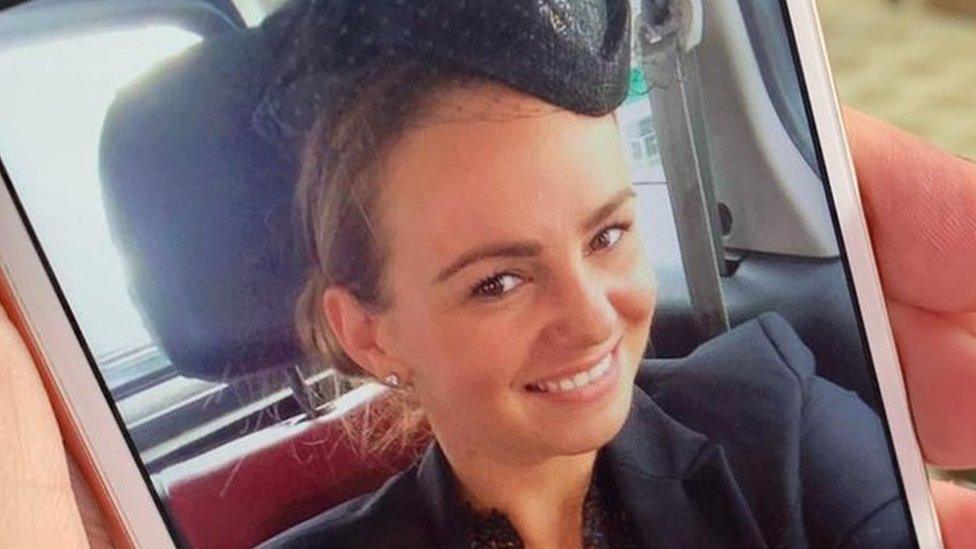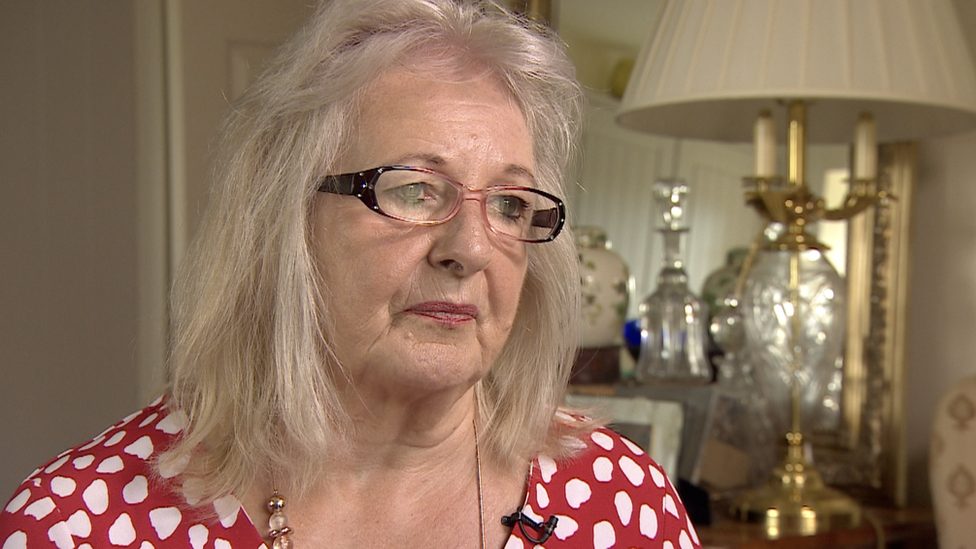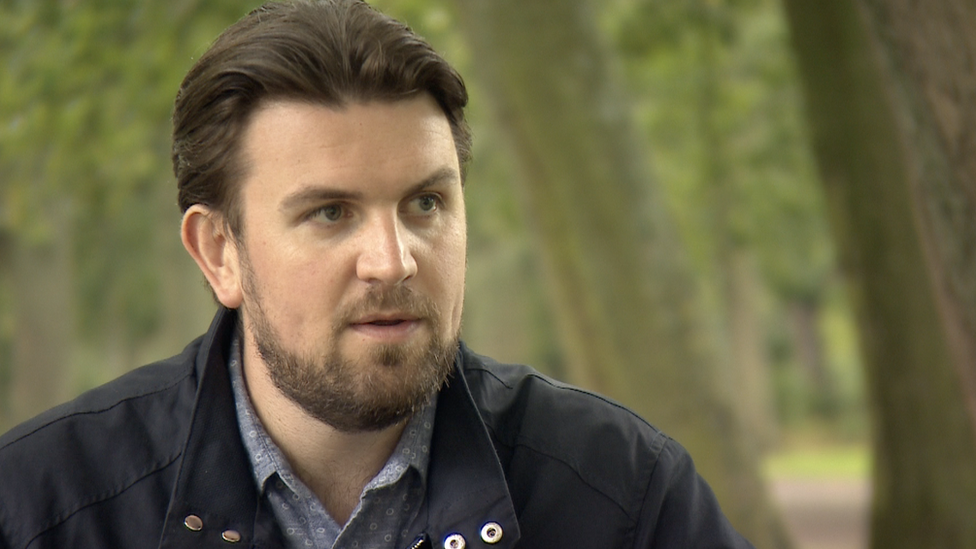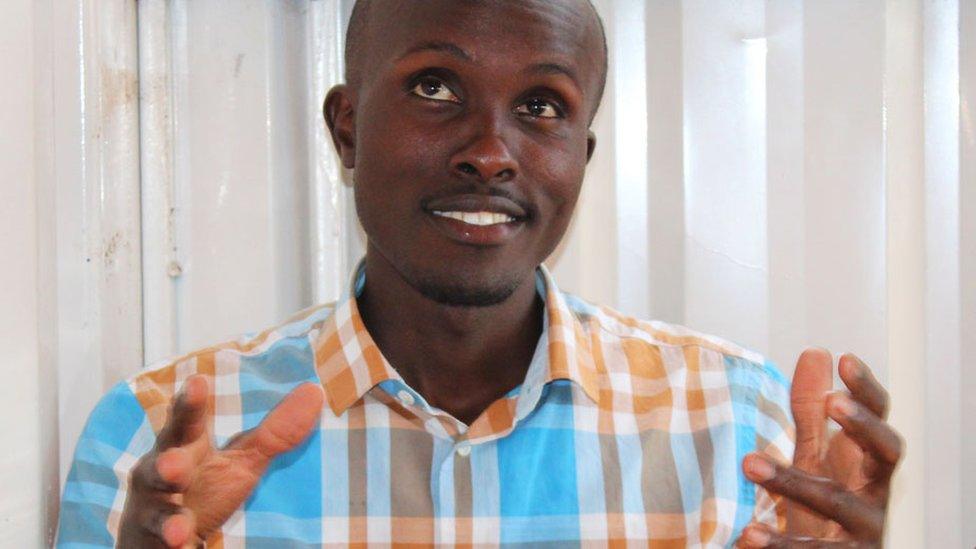Gambling addiction: Mum's hopes for new Leeds NHS service
- Published

Kimberly Wadsworth began gambling in 2015 against a backdrop of personal problems
The mother of a woman who killed herself after gambling away £36,000 in a fortnight hopes a new NHS service will stop others facing the same pain.
Kimberly Wadsworth even gambled away money raised to pay off her debts, leaving her mother Kay homeless.
The Northern Gambling Service clinic in Leeds is the first outside London.
Health Secretary Matt Hancock said no-one's access to support should depend on where they live.
Kimberly, 32, who lived in Ilkley, West Yorkshire, started gambling at casinos and online in 2015 against a backdrop of depression, the death of her father and an unhappy marriage.
She tried to hide it from her mother, but had spent £44,000 on gambling, including £17,000 from her grandmother's will.
Mrs Wadsworth, 65, said: "I sold my house in Leeds, the family home. I gave her £36,000 so that she could pay off her gambling debts and she didn't pay it off.
"She didn't pay a penny off and she just gambled it all away within two weeks and I became homeless."

Kay Wadsworth's daughter gambled £36,000 of her money
She said she had arranged for Kimberly to see a hypnotherapist to get her through her gambling addiction but she never went.
Instead, she sent her mum a message which read "It's too late for me, mum", before taking her life.
Mrs Wadsworth said if help had been more readily available then her daughter would still be alive.
"They know how to deal with these people that are gambling addicts, and they know the signs," she said.
"It's the signs, and knowing what they've said and knowing that they're hiding it. And the lies that they tell, it's unbelievable."
The Northern Gambling Service will aim to help people with the most serious problems, including those at risk of suicide.
It has been commissioned by NHS England and Gamble Aware and is run by Leeds and York Partnership Foundation Trust.
An estimated 340,000 people across the UK have a serious gambling addiction, according to the Gambling Commission.
The NHS and the charity Gamble Aware are jointly funding the service in the north of England - which is expected to cost about £1m a year - for the next three years.
The service is set to open centres in Manchester and Sunderland, to serve the north of England and north Midlands.
Mr Hancock said: "As part of our NHS Long Term Plan, we will continue to roll out these specialist services across the country and undo the damage caused by gambling and protect our most vulnerable."

'Why can't I just stop?'

Chris Murphy has spent more than £100,000 on gambling
Chris Murphy, from Leeds, has agreed to help mentor gamblers who are referred to the new service.
He became addicted to gambling after winning £350 on a bet aged 17. Since then, he has spent more than £100,000 on gambling and tried to take his own life aged 23.
The 33-year-old has not gambled for eight months.
"Looking at it as a health problem - you're unwell. So you need support with that. That's an important thing, because there's a lot of self-defeatism, thinking 'why can't I just stop?'.
"It's probably harder to understand than drug and alcohol addiction, with it not being a substance that you're addicted to.
"There's nothing wrong in admitting you need help with something. I think that was one of the things that set me back, that I could do it alone, that I should be able to stop through willpower.
"Actually accepting I have no willpower over that activity, that's where the power really lies in stopping."

Matthew Gaskell, consultant psychologist and clinical lead for the Northern Gambling Service, said the centre could potentially turn around many people's lives.
"Some people can be suicidal, have other mental health problems, relationship breakdown, employment difficulties, financial difficulties as well - so we're going to get some people really very distressed and in real desperate need of help.
"The important message is not everyone is the same so they will get a very personalised care package.
"There's talking therapy which will actively address the gambling problem, also help the person build the life they want for themselves and their families and their future and that's really important.
"This is the first phase - over the next five years we're looking to expand across the country to open 14 clinics."
If you or someone you know is struggling with issues raised by this story, you can find support through the BBC Action Line.
The story of a woman who lost more than £600,000 gambling

Follow BBC Yorkshire on Facebook, external, Twitter, external and Instagram, external. Send your story ideas to yorkslincs.news@bbc.co.uk, external.
- Published12 September 2019

- Published26 June 2018

- Published7 February 2019

- Published13 January 2019
